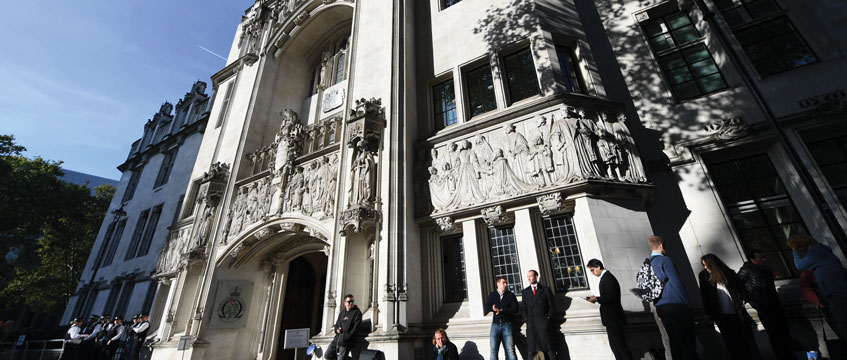The Supreme Court has come up with its own resolution to a complicated dispute over excessive services charges levied on commercial tenants.
The dispute, between outdoor leisure retailer Blacks and Sara & Hossein Asset Holdings Ltd (S&H), the landlord of premises in Whitechapel and Liverpool, concerns more than £400,00 in service charges levied in 2018 and 2019.
Under the terms of the lease on the properties, S&H stated it should provide an annual certificate setting out the service charge due and that sum should be “conclusive” unless there was “manifest or mathematical error or fraud”.
Blacks refused to pay the full amount, saying that the charge was excessive and included unnecessary items not due under the the lease. S&H sought summary judgment for payment, saying Blacks had agreed to accept whatever was in the certificate unless there was mathematical error or fraud.
S&H lost in the High Court and won in the Court of Appeal. However, in a majority ruling handed down today (18 January), read in summary by Lord Hamblen, the Supreme Court refused to back either side’s approach.
Hamblen said that S&H’s argument that the charge stated on the certificate should be paid unless there was mathematical error or fraud, was a “pay now argue never” approach in which the landlord effectively sat in judgment on their own case.
However the court also rejected Blacks’ approach, saying the company was not entitled to withhold payment of the sum. Instead, Blacks should pay the sum and then take further action in the High Court disputing its underlying liability for the service charge payments.
This is a “pay now argue later regime”, Hamblen said, stating that this is a “contractual arrangement that is often found”.
He said that this “iterative approach” is consistent with the wording in the contact and avoids “surprising and uncommercial consequences”.
Richard Cressall, a partner at law firm Gordons, said the court’s interpretation strikes a balance. He said: “The idea is to protect cash flow, allowing landlords to pay for services, without allowing landlords to be entirely beyond challenge and a law unto themselves. You can see the policy behind trying to find a middle way here.
“For many it will introduce a welcome balance, particularly for retailers already faced with ongoing financial pressures and increasing rents. Landlords, however, will look at the costs they already incur for the increasing number of vacant units and wonder whether their receipts can cover the cost of a possible new influx of rebate claims from tenants over service charge payments.”
Sara & Hossein Asset Holdings Ltd (a company incorporated in the British Virgin Islands) (Respondent) v Blacks Outdoor Retail Ltd (Appellant)
Supreme Court (Lord Hodge, Lord Briggs, Lord Kitchin, Lord Sales, Lord Hamblen), 18 January 2023
To send feedback, e-mail newsdesk@eg.co.uk or tweet @EGPropertyNews








